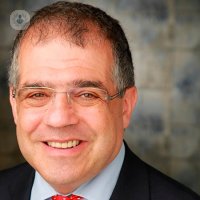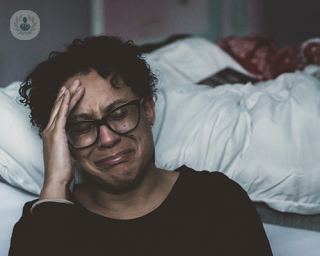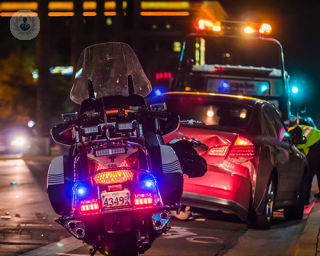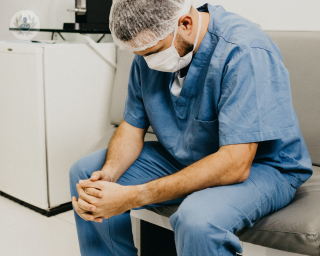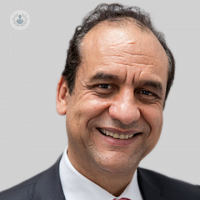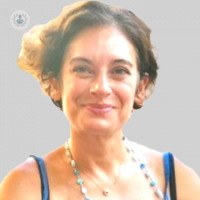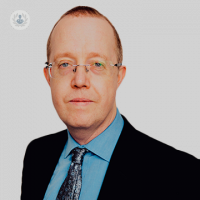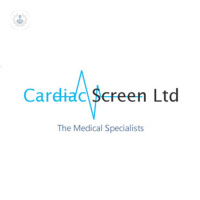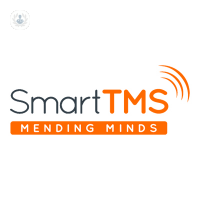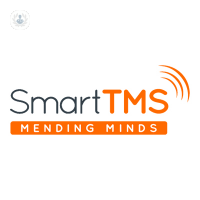Post-traumatic stress disorder (PTSD)
Dr Leon Rozewicz - Psychiatry
Created on: 01-29-2015
Updated on: 09-28-2023
Edited by: Aoife Maguire
What is post-traumatic stress disorder? (PTSD)
Post-traumatic stress disorder (PTSD) describes a set of symptoms that appear after experiencing a traumatic or catastrophic event. Those who experience PTSD have difficulty overcoming an unpleasant experience. These symptoms lead to an alteration of physical life to such an extent that leading a normal life becomes very difficult.
Symptoms of PTSD are normal in those who have suffered or witnessed a traumatic experience, but if they persist for approximately more than a month and the individual is unable to progress in handling their emotions and processing the experience, this is considered to be post-traumatic stress disorder.
What does PTSD feel like?
Post-traumatic stress disorder prevents sufferers from leading a normal every day life. Those who suffer with PTSD feel depressed, anxious, guilty and angry or more irritable and susceptible. In addition, symptoms may include nightmares or flashbacks, avoidance of situations that bring back the trauma, heightened reactivity to stimuli, anxiety, or feeling incredibly low.
Survivors of traumatic events can often experience nightmares and flashbacks which are so realistic, they feel as if they are experiencing the traumatic situation all over again. They may also experience the same emotions they felt at the time of the event such as shame, fear or distress.
Furthermore, in many cases, the patient often takes an avoidance attitude to the trauma, as well as a lack of interest in maintaining social relationships, becoming withdrawn from family and friends.
Causes of post-traumatic stress
The cause of post-traumatic stress is a traumatic experience, which causes intense sadness or anxiety. PTSD can occur after any type of traumatic event, as it depends on the individual and their reaction to the event. PTSD could occur after a road accident, or violent assault, for example, but it could also occur as a result of a particularly traumatic birth experience or medical experience. PTSD can present shortly after the experience, or it can present weeks or months later.
Some people may continue to suffer from PTSD several years after the triggering event has occured. Events which may trigger long term PTSD include war, terrorist attacks, bullying or natural disasters.
What is complex PTSD?
Complex post-traumatic stress disorder (complex PTSD) is a condition where people experience symptoms of PTSD alongside other symptoms, such as:
- Difficulty controlling emotions.
- Feeling empty or hopeless.
- Feeling angry towards the world.
- Feeling damaged beyond repair.
- Feeling different to others/feeling as if others cannot relate to you.
- Suicidal thoughts.
- Dissociative symptoms e.g. depersonalisation or derealisation.
Complex PTSD can also result in physical symptoms, such as:
- headaches
- dizziness
- chest pains
- stomach aches

Who suffers from PTSD?
While it's impossible to predict who will develop PTSD in response to trauma, there are certain risk factors that increase your vulnerability. Many risk factors revolve around the nature of the traumatic event itself. Traumatic events are more likely to cause PTSD when they involve a severe threat to your life or personal safety: the more extreme and prolonged the threat, the greater the risk of developing PTSD in response. Intentional, human-inflicted harm—such as rape, assault, and torture— also tends to be more traumatic than “acts of God,” or more impersonal accidents and disasters. The extent to which the traumatic event was unexpected, uncontrollable, and inescapable also plays a role.
In terms of complex PTSD, due to certain experiences and circumstances, some people are more likely to develop complex PTSD than others. This includes people who:
- Have undergone previous traumatic experiences, especially in early life.
- Have experienced long lasting trauma.
- Have family history of PTSD or depression.
- Have a history of physical or sexual abuse.
- Have a history of substance abuse.
- Have a history of depression, anxiety, or another mental illness.
- Have experienced harm or abuse from a close family member or friend, someone that should´ve been trustworthy.
How can I cope with PTSD?
There are some day to day things that you can do which can help you to cope with PTSD. These include:
- Joining a PTSD support group.
- Taking time to learn about trauma and PTSD- this will help you greatly to understand your trauma more. Talk about your trauma with a close, trustworthy person.
- Not using alcohol or drugs- this will only make you feel worse.
- Practising relaxation techniques, such as deep breathing.
Treatment of post-traumatic stress
Although there are some small, positive ways to cope with PTSD, it is probable that sufferers will want to pursue treatment in order to deal with trauma that they possess. Treatment of post-traumatic stress varies depending on the case, but it may include psychotherapy to overcome the trauma, and medication (e.g antidepressants).
The most common therapies to treat post-traumatic stress are exposure therapy and cognitive therapy as well as techniques to manage anxiety.
Medication should always be prescribed under the supervision and therapy of a psychiatrist so that the patient's progression can be controlled and observed, thus avoiding possible side effects of the drugs.

